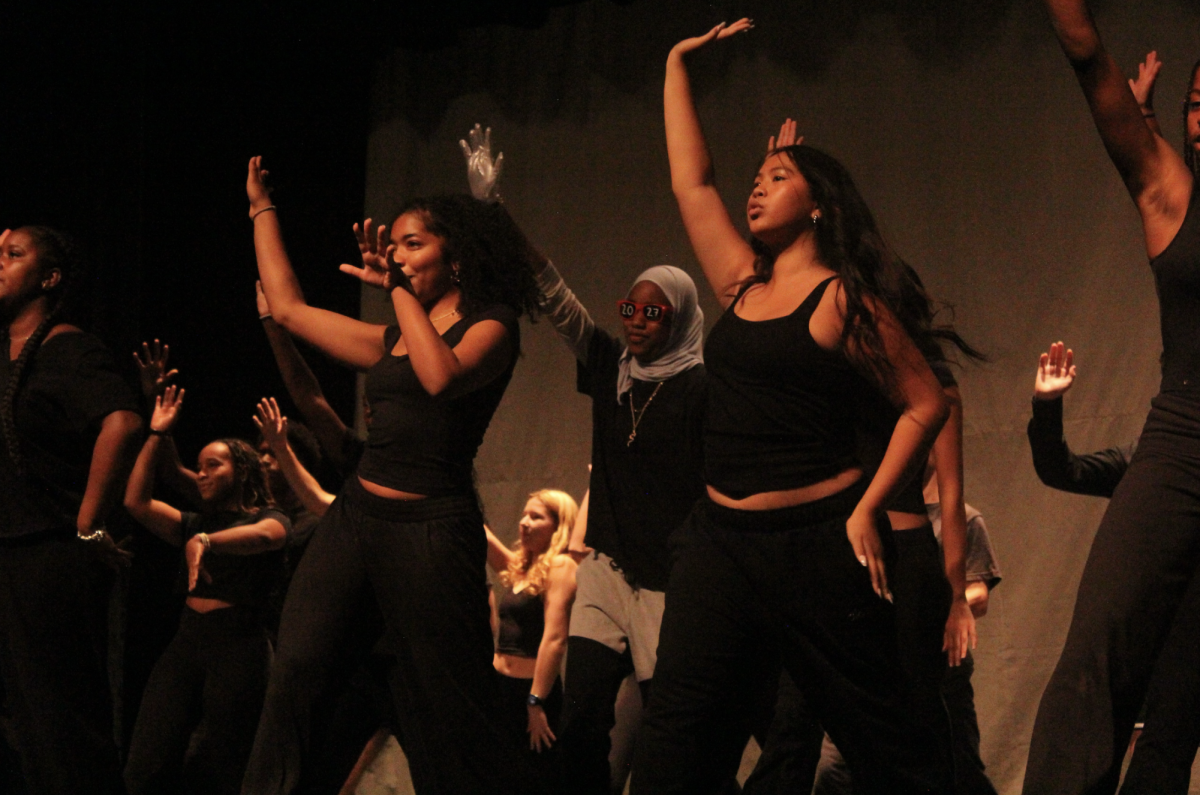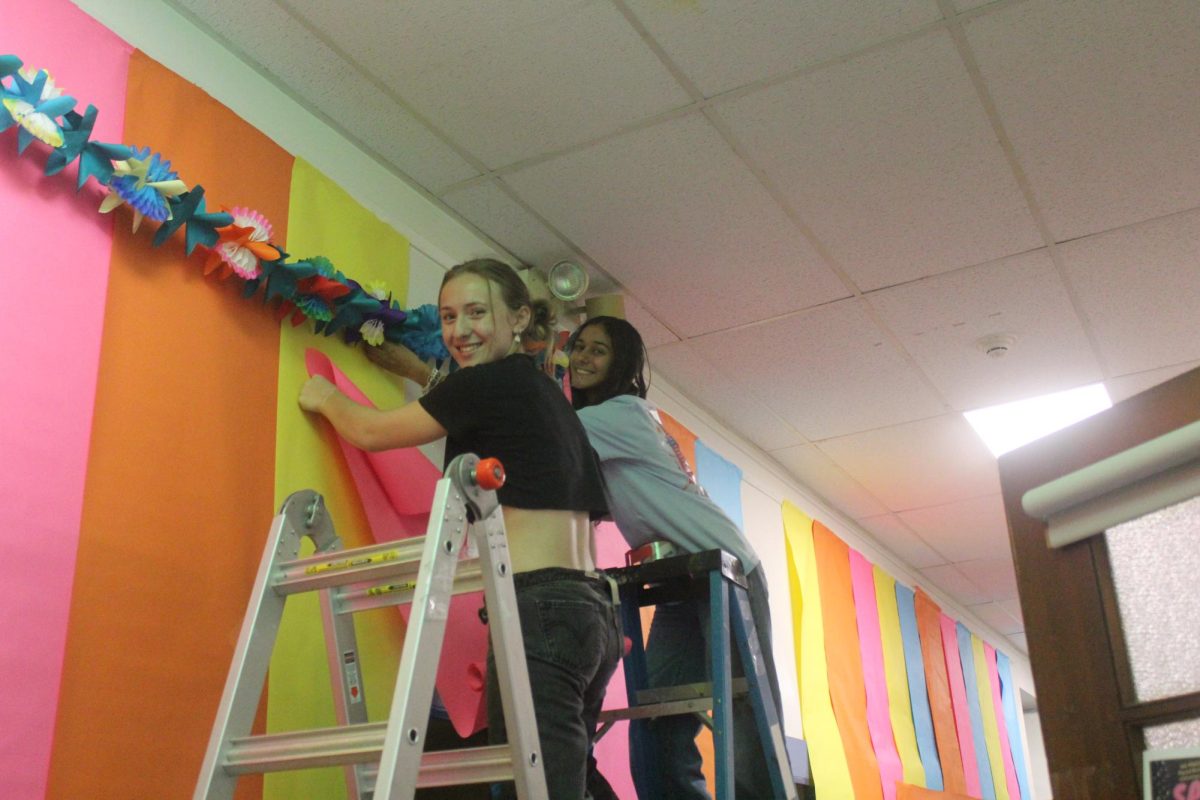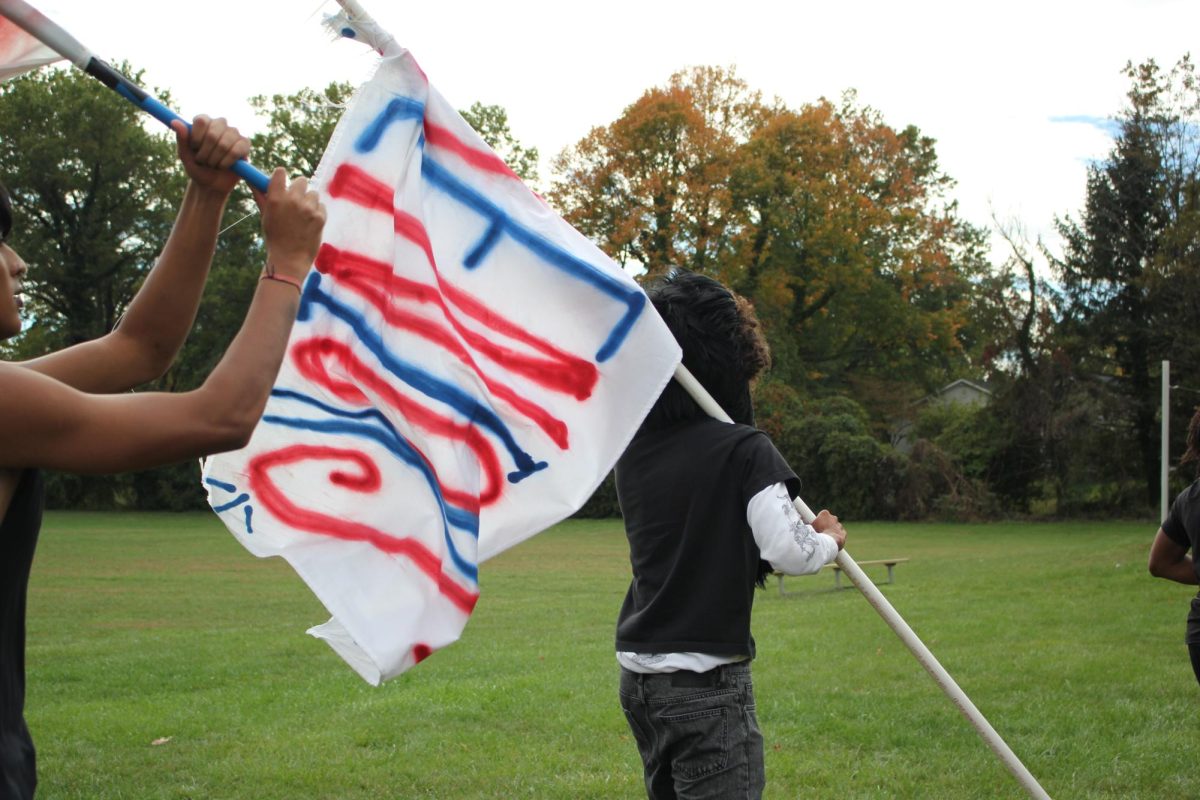On Friday, January 24, Upper School students attended the first Inclusive Community Conversation of the 2024-25 school year, an assembly that featured a panel of five senior students. After the first iteration this school year, the event left many students with mixed opinions on the discussions’ real value to the Upper School community.
Hosted by the Upper School Dean of Students, Will Miller, the community staple occurs three to four times throughout the school year and has highlighted various students and faculty in a sit-down, casual interview-styled discussion. In the past, the conversations have featured faculty-only panels, an LGBTQ+ affinity group panel, and a mixed-grade panel. The Inclusive Community Conversations aim to let the community know more about the selected panel members.
Many students, including Dean Simpson ’26, enjoy listening to the Inclusive Community Conversations to get to know their peers better. Simpson especially liked listening to the most recent assembly.
He said, “The most recent [conversation] was better than most because I feel like it was a good group of people that weren’t afraid to express their opinions.”
Karrington Colon ’27 agreed with Simpson on the overall tone and feeling of the assembly-time conversations and noted that she was “definitely laughing” while listening.
She stated, “I like the fact that the conversations are supposed to be funny.”
Similarly, Amiya Sant ’26 thought that the conversations in general “can be fun and thoughtful, even if only as a form of entertainment.” Sant continued, “I love the community conversations.”
As a new student, Lyla Malik ’27 thought that the conversation was “a nice way to get to know the community better, especially those who aren’t [in] the same grades.”
As a freshman student new to the Upper School community, Noah Hasni ’28 also believed that these types of community conversations are a good time to learn more about the Upper School community.
“I think it was very insightful to hear from older students as a freshman and [get] that senior insight and wisdom that they’ve [gained after] staying in the school for four years,” said Hasni. “I think senior wisdom is definitely a thing, and passing it down to the younger generations is definitely useful, as we can learn from what they ha[ve],” he added.
Rosie Paznokas ’25, who was a senior panelist for the Inclusive Community Time Conversation on January 24, agreed that “having panels with more of the older members of the community can be beneficial for some of the underclassmen.”
However, not all MFS students have the same positive opinions on the Inclusive Community Conversations. Some students question whether the panels truly represent the diversity of the student body, while others are concerned about the range of perspectives shared during the discussions.
Colon believes that the conversations aren’t as inclusive as the name suggests.
She stated, “I feel like it’s supposed to be an inclusive community conversation, but the people that often go up [on the stage] are people who I already know genuinely. [They] are already more popular types of people; they’re really well-known.”
On the other hand, Sant expressed frustration with the lack of differing viewpoints and said, “It shouldn’t be an echo chamber. Different thoughts and ideas, please.”
However, Paznokas commented, “I’ve always enjoyed getting to know somebody from the community in a different light because of the conversation.” As a member of the most recent Inclusive Community Conversation, Paznokas said she was “really excited when Mr. Miller asked [her] to be on the panel. … I just thought it would be a great platform for me to get to know some people in the community before I left [MFS],” shared Paznokas.
Students not only have concerns about the people chosen to speak but also about the frequency of the conversations. Miles Wilkins ’25, a past panelist for an Inclusive Community Conversation, believed that the conversations should occur “once a month, or maybe, once every six weeks.”
However, others like Simpson disagree. Simpson explained, “We had the [conversations] too much [last year] and it became a tad oversaturated.”
Students are unsure of whether or not the conversations are helping the community feel more inclusive overall.
Skeptical of their true benefits, Colon stated, “Genuinely, I don’t think anything [like these conversations] will make a difference in terms of inclusivity.” Because of the lack of audience participation, she believes that “people aren’t really going to fully listen” to the conversation “if people are just sitting there [watching].”
Wilkins thought that more diversity in students and faculty should be shown in the Inclusive Community Conversations.
“I’d like to see some more exchanges between students and faculty,” said Wilkins. “Once [students] get to know [both] kids and faculty, I feel like it becomes pretty interesting. I think getting a mix between both to [address] a certain topic would be effective.”
In hopes of learning more about students on a deeper level, Sant wished that in future conversations, Miller would try to show “the background of each person, show them as people, show how that might influence their opinion of certain topics, [and] then have them speak on that topic as a group.” Still, Sant thinks that the conversations leave “baby impacts” on the community in terms of inclusivity.
Reflecting on his own experience as a panelist, Wilkins stated, “What made [my experience] most effective was that my conversation was really deep, and I think it made more of an impact on everyone. I think they help community dynamics. I feel like there should be some more [moments] for this [kind of connection].”
“Mr. Miller [should] open with personal questions about each person’s background so that we get an idea about who they are and so that the people can feel more comfortable talking,” said Sant, agreeing with Wilkins. “I really enjoyed when Miller had prior knowledge of each person also; it felt more like a conversation that way.”
Despite criticism, Hasni believed that the conversations are valuable to the community. He remarked, “I think it’s a very good tradition [that] MFS should definitely maintain.”






